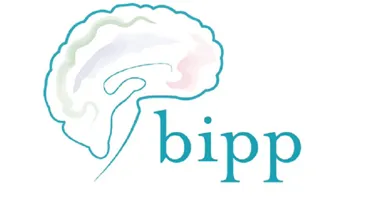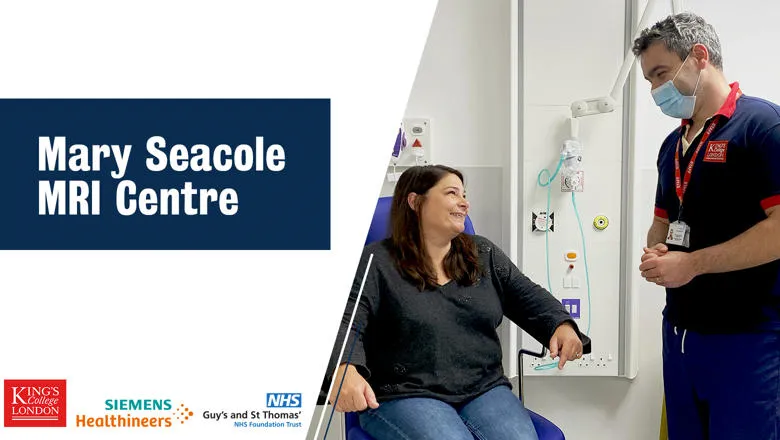
Professor Jo Hajnal
Professor of Imaging Science
Research interests
- Imaging sciences
Biography
Jo Hajnal obtained a PhD in Physics in 1984, and following work on electromagnetism and molecular beam optics, started research in the domain of MRI in 1990. From 1997 to 2002 he led an industrial research team embedded in Hammersmith Hospital, before he was appointed as Professor of Imaging by Imperial College. He has held many senior roles in university and the MRC Clinical Sciences Centre. He joined King’s College London in 2012 as Professor of Imaging Science and now leads a wide ranging research program focusing on Imaging technology, particularly MRI and US, and image acquisition-reconstruction-analysis methods. Areas of special interest are imaging in the presence of motion, particularly neonates and fetuses, parallel imaging (transmit and receive) and accelerated/quantitative imaging. He leads the new 7T for London ultra-high field in vivo imaging initiative, funded by the Welcome Trust, and also the developing Human Connectome Project data acquisition and the iFIND project.
Research

Wellcome EPSRC Centre for Medical Engineering
The Centre focuses on the science and engineering of medical imaging. The UK is strong in medical imaging, with the Centre hosting the largest research group in this area in Europe.The Centre combines fundamental research in engineering, physics, mathematics, computing, and chemistry with medicine and biomedical research. The 400 inter-disciplinary scientists in the Centre are transforming the diagnosis and treatment of patients, and will deliver exceptional research.

BIPP Study
The BIPP Study is a longitudinal follow-up study of brain development and childhood outcomes following very preterm birth, led by Professor Chiara Nosarti.
Project status: Ongoing
News
New eye tracking controlled VR system enhances MRI scans for young children
Researchers from King’s College London have developed new eye tracking technology which enables young children to engage in an immersive Virtual Reality (VR)...
Dr Tianrui Zhao awarded Royal Academy of Engineering Research Fellowship
Dr Zhao has been awarded the prestigious Fellowship for his research into new methods of photoacoustic imaging to improve the diagnosis of breast cancer.

Pioneering medical imaging centre uses AI to drive research and improve care
The £10.5million Mary Seacole MRI Centre is shared between Guy’s and St Thomas’ NHS Foundation Trust and King’s College London, working with Siemens...

Brain charts map the rapid growth and slow decline of the human brain over our lifetime
The dHCP, a large open science project is an important part of the paper, having provided high quality, otherwise difficult to obtain brain MRIs of newborn...

A novel virtual reality technology to make MRI a new experience
The researchers say they hope this advancement will make it easier for those who find having a MRI scan challenging such as children, people with cognitive...

Europe's first 'game-changing' portable MRI machine arrives at King's Health Partners
This programme, led by King’s Health Partners and funded by the Bill & Melinda Gates Foundation, involves the assessment of brain health and potential...

Newborn brain scans available online in large scale open-source project, clarifying how some conditions develop
The images uncover how wiring and function of the brain develops during pregnancy and after birth, shedding light on how conditions like autism develop, and...
![3. dHCP data release 3_comms (T2 w slices 28w to 44wk)[2]](/newimages/folsm/main-article/bmeis/3.-dhcp-data-release-3-comms-t2-w-slices-28w-to-44wk2.xc8d6444e.png?w=780&h=478&crop=780,440,0,19&f=webp)
Professor Jo Hajnal honored by admission to Royal Academy of Engineering Fellowship
Biomedical Engineering & Imaging Sciences Professor Jo Hajnal admitted as Fellow of Royal Academy of Engineering

Research

Wellcome EPSRC Centre for Medical Engineering
The Centre focuses on the science and engineering of medical imaging. The UK is strong in medical imaging, with the Centre hosting the largest research group in this area in Europe.The Centre combines fundamental research in engineering, physics, mathematics, computing, and chemistry with medicine and biomedical research. The 400 inter-disciplinary scientists in the Centre are transforming the diagnosis and treatment of patients, and will deliver exceptional research.

BIPP Study
The BIPP Study is a longitudinal follow-up study of brain development and childhood outcomes following very preterm birth, led by Professor Chiara Nosarti.
Project status: Ongoing
News
New eye tracking controlled VR system enhances MRI scans for young children
Researchers from King’s College London have developed new eye tracking technology which enables young children to engage in an immersive Virtual Reality (VR)...
Dr Tianrui Zhao awarded Royal Academy of Engineering Research Fellowship
Dr Zhao has been awarded the prestigious Fellowship for his research into new methods of photoacoustic imaging to improve the diagnosis of breast cancer.

Pioneering medical imaging centre uses AI to drive research and improve care
The £10.5million Mary Seacole MRI Centre is shared between Guy’s and St Thomas’ NHS Foundation Trust and King’s College London, working with Siemens...

Brain charts map the rapid growth and slow decline of the human brain over our lifetime
The dHCP, a large open science project is an important part of the paper, having provided high quality, otherwise difficult to obtain brain MRIs of newborn...

A novel virtual reality technology to make MRI a new experience
The researchers say they hope this advancement will make it easier for those who find having a MRI scan challenging such as children, people with cognitive...

Europe's first 'game-changing' portable MRI machine arrives at King's Health Partners
This programme, led by King’s Health Partners and funded by the Bill & Melinda Gates Foundation, involves the assessment of brain health and potential...

Newborn brain scans available online in large scale open-source project, clarifying how some conditions develop
The images uncover how wiring and function of the brain develops during pregnancy and after birth, shedding light on how conditions like autism develop, and...
![3. dHCP data release 3_comms (T2 w slices 28w to 44wk)[2]](/newimages/folsm/main-article/bmeis/3.-dhcp-data-release-3-comms-t2-w-slices-28w-to-44wk2.xc8d6444e.png?w=780&h=478&crop=780,440,0,19&f=webp)
Professor Jo Hajnal honored by admission to Royal Academy of Engineering Fellowship
Biomedical Engineering & Imaging Sciences Professor Jo Hajnal admitted as Fellow of Royal Academy of Engineering

